1 . Sign language is a kind of body language. Body language includes eye contact, walking postures, standing postures and gestures. Body language can express all kinds of thoughts and feelings. Different cultures have different body language. Here are some common gestures in different cultures.
In China, a thumb-up sign is used to praise someone for being “good”, “great” and “smart”. In America, a thumb-up sign means “It’s good” or “It’s OK” while a thumb-down sign means the opposite (相反的). But in some countries, there are other meanings. For example, in Japan, that also means “man”, “your father” and “the highest”. In South Korea, it also means “the chief”, “one’s own father”, “minister” and “captain”. In Australia, the United States, Mexico and other countries, it means “the fate of prayer (祈祷的命运)”. As for French people and Indians, this gesture can be used when asking for a ride.
Point with your forefinger (食指). It is very impolite in Europe and America. British and American people make a circle with the thumb and forefinger and the other three fingers keep straight, which means “Excellent”.
Put out your forefinger. In the United States, it’s used to ask someone to wait; French people ask for an answer by using this gesture; In Myanmar, it means “please”; In Singapore, it shows something or someone is the most important.
Hold out your forefinger and middle finger and make the V word. “V” is the first letter of victory (胜利), so it means “victory” in Britain, France and other countries. But in Serbia, the gesture stands for “heroism” and in the Netherlands, it stands for “freedom”.
Besides, the “OK” sign means “money” in Japan while it means bad behavior in Latin America.
1. What does the underlined word “that” refer to?| A.The thumb-down sign. | B.The thumb-up sign. |
| C.The hand-up sign. | D.The hand-down sign. |
| A.The thumb-down sign may mean “It’s bad” or “l don’t agree” in America. |
| B.People will be unhappy if you point with your forefinger in America. |
| C.People in Singapore usually put out their forefingers to show “please”. |
| D.The “OK” sign in Latin America has a different meaning from Japan. |
| A.①② / ③④⑤⑥ | B.① / ②③/④⑤⑥ | C.① / ②③④⑤⑥ | D.① / ②③④⑤ / ⑥ |
| A.Different meanings of sign languages. | B.Sign languages in western countries. |
| C.Different countries have different cultures. | D.Body language in world is all different. |
Five Famous Explorers in History | |
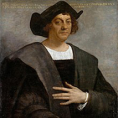 | Christopher Columbus (1452 — 1506) As an Italian explorer, Columbus made four important voyages to the Americas (1st journey was in 1492 to the Bahamas). Sailing in unknown seas, Columbus made humans know about the knowledge of crossing the Atlantic and the Americas. |
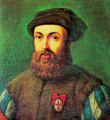 | Vasco da Gama (1469 — 1524) Vasco da Gama was a Portuguese explorer who was the first European to reach India by sea. Da Gama made a direct voyage to India — travelling around the Cape of Good Hope in South Africa — arriving in Calicut in 1498, which connected Europe and Asia for the first time by ocean route. |
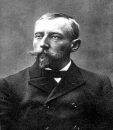 | Roald Amundsen (1872 — 1928) Amundsen was a Norwegian explorer and an important person during Antarctic exploration. His Antarctic expedition (探险队) of 1910 —1912 discovered the South Pole. In 1926, he led the first successful expedition to reach the North Pole. He also made the first voyage through the Northwest Passage. |
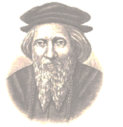 | John Cabot (1450 — 1499) Cabot was an Italian voyager and explorer. In 1497, he discovered parts of North America (later named Newfoundland). This is widely considered to be the first European discovery of North America since the Viking journeys of the 11th century. |
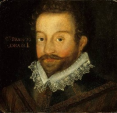 | Sir Francis Drake (1540—1597) Drake was an English explorer who successfully made the second Voyage around the world from 1577 to 1580. He also discovered the Drake Passage in 1577. |
1. Columbus's voyages made people know more about _________.
| A.North America | B.India | C.the Americas | D.Asia |
| A.came from South Africa |
| B.arrived in Calicut in 1498 |
| C.was the first European to travel by sea |
| D.made a direct voyage to Asia |
| A.Italy. | B.America. | C.Britain. | D.Portugal. |
| A.Two years. | B.Three years. | C.Four years. | D.Five years. |
a. Making a direct voyage from Europe to India.
b. The first voyage to the Americas.
c. The discovery of parts of North America.
d. The discovery of the South Pole.
e. The discovery of the Drake Passage.
| A.c-b-a-e-d | B.c-b-e-d-a | C.b-c-e-a-d | D.b-c-a-e-d |
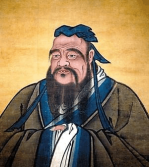
Who is the greatest teacher in Chinese history? Many people would think of Confucius, whose birthday was September 28. Although he lived over 2000 years ago, people still remember and respect him for his contribution to the education today.
Confucius lived in the Kingdom of Lu, which lies in today's Shandong Province. He lived during the Spring and Autumn Period. He had a hard childhood. His father died when he was only 3 years old. His mother brought him up. As a child, he had to work to help his mother, but young Confucius didn't give up studying. He visited many famous teachers and learned music, history, poetry and sports.
Later, he became a teacher and started the first public school in Chinese history. At that time, only children fromnoblefamilies could go to school, but Confucius believed everyone should go to school if they wanted to learn. He had about 3000 students in his lifetime.
Today, people still follow Confucius' lessons. He told us that we have something worthy to be learned. "When I am with three people, one of them must be better than me in some areas. I choose their good qualities and follow them."
He also taught us that thinking is very important in study. "All study but no thinking makes people puzzled. All thinking but no study makes people lazy."
Confucius is not only a great teacher, but also a famous thinker with wise thoughts about the world and society. His most important ideas are about kindness and good manners. He said young people should take care of the old. People should give up only thinking of themselves and work for others. Some of his popular words are: "A kind person should care for others" and "A person should be strict with himself, but be kind to other." People uses his ideas to help themselves and society. At present, more than 100 Internet websites are telling people about him, and his ideas have gone far into east and south Asia.
1. People still remember Confucius today because of ________.| A.his hard work in the childhood | B.his wise thoughts about education |
| C.his travelling from state to state | D.his birth in Spring and Autumn Period |
| A.poor | B.bright | C.hard-working | D.rich |
①Confucius’ father died and he had to help raise the family.
②Confucius educated about 3000 students in his life time.
③Confucius visited many famous teachers in his childhood.
④Confucius' ideas are learned from all over the world.
⑤Confucius started the first public school in Chinese history.
| A.③①④②⑤ | B.①③⑤②④ | C.①③②⑤④ | D.③①④⑤② |
| A.No one has something worthy to be learned. |
| B.All study but no thinking makes people puzzled. |
| C.All thinking but no study makes people lazy. |
| D.A person should be strict with himself, but be kind to others. |
| A.people in East and South Asia know little about Confucius' ideas |
| B.people only use Confucius' ideas to help them study |
| C.more and more people will learn about Confucius' ideas in the future |
| D.we can hardly find any information about Confucius on the internet |
4 . With the development of science, more and more students don't like taking notes by hand. They use digital cameras to take notes in class. They think it is easier to take pictures of what their teachers write on the blackboard or record what their teachers say in class. The children might think there are too many notes to take. They are trying to find ways to make things easier, so they use digital cameras. In fact, children are very clever to make use of technology.
But do digital cameras really make taking notes easier?
Not really. You have a lot of things to do before you read notes from digital cameras. To begin with, you have to find a computer. Then you need to copy the pictures into the computer. Next, you have to find a printer to print the pictures. Another thing is that you can't hear the sound from digital cameras clearly because there is usually a lot of noise. You will have to listen to it slowly many times before you understand everything.
In fact, taking notes by hand is really the most effective way. It can help you remember and understand what you are learning. In order to save time, you can choose the most important things or the things you don't understand to write down. You don't have to write down everything.
1. Why do more and more students take notes with digital cameras but not by hand?| A.Because they want to take the right notes. | B.Because their teachers want them to do so. |
| C.Because they want to make taking notes easier. | D.Because they always want to try new things. |
a. print the pictures b. find a computer
c. copy the pictures into the computer d. take pictures
| A.b-c-d-a | B.b-c-a-d | C.d-a-b-c | D.d-b-c-a |
| A.The sound from the digital cameras. | B.The noise. |
| C.The digital camera. | D.The note. |
| A.By taking pictures of what teachers write on the blackboard in class. |
| B.By recording what teachers say in class. |
| C.By using a computer. |
| D.By taking notes with your hand. |
| A.You shouldn't be afraid to write down everything. |
| B.To save time, you should not take notes but memorize what the teachers say. |
| C.You should write down all the words that your teachers write on the blackboard. |
| D.You only need to write down what you don't understand or some key words. |
5 . People have told stories about Robin Hood for over 700 years. Nobody knows if he was a real person or an invented character. In the legends, Robin was extremely smart and humorous, he helped strangers, and later his kindness paid off.
The Merry Adventures of Robin Hood appeared in 1883. It was Howard Pyle’s first book and it was a great success.
At the beginning of the story, Robin was just a young man, who was good at archery (射箭术). One day he was walking through Sherwood Forest, a royal hunting forest near Nottingham in England. There he got into trouble with a group of men. Among them, he killed the cousin of the Sheriff (郡长) of Nottingham. Robin became a legendary outlaw, and soon the leader of one hundred outlaws, known as his “Merry Men”.
Robin and his “Merry Men” always looked for rich people and asked them to their camp in Sherwood Forest. When they arrived, Robin gave them a good meal and played music for them. Then he took their gold away to help the poor. Robin became most famous for “robbing from the rich and giving to the poor”.
The Sheriff of Nottingham was Robin’s greatest enemy. He was cruel and treated the poor badly. It was his job to keep the woods safe and to make sure that nobody stole the king’s deer. He hated Robin because Robin was an outlaw. But most of all, he hated Robin because everyone else loved him. The Sheriff of Nottingham kept trying to catch Robin Hood and his “Merry Men”, but never succeeded.
1. What was Robin Hood like according to the passage?| A.Clever and full of fun. | B.Smart and serious. |
| C.Cruel to the poor people. | D.Good at telling stories. |
| A.enemy | B.criminal | C.king | D.fighter |
| A.Playing beautiful music for the rich. |
| B.Robbing the rich and helping the poor. |
| C.Stealing the king’s deer in Sherwood Forest. |
| D.Killing the cousin of the Sheriff of Nottingham. |
① Robin became the leader of a group of outlaws.
② Robin asked the rich people to Sherwood Forest.
③ Robin killed the cousin of the Sheriff of Nottingham.
④ Robin gave poor people the gold he took away from the rich.
| A.①④②③ | B.②③①④ | C.③①④② | D.③①②④ |
| A.Robin Hood was a real man who once lived in England. |
| B.People can only read stories of Robin Hood from books. |
| C.The stories of Robin Hood are still very popular nowadays. |
| D.Robin Hood didn’t get help from strangers who he once helped. |
6 . A farmer lost an expensive gold watch in the barn(谷仓) on the farm. He looked for it everywhere but couldn’t find it. So he put a notice on the gate of the farm: Whoever finds the gold watch will get 100 dollars from me. People tried their best to look for the watch in order to get the money. However, the barn was too large and the straw(草) in the barn was too thick. It was getting dark and they were still unable to find it, so they gave up the 100 dollars one by one.
But only a small boy still kept on looking for it. He had nothing to eat the whole day. To solve the family problem, he hoped to find the gold watch and let parents, brothers and sisters have a full meal.
The night was already getting late, the boy was also tired. He was lying in the straw to have a rest when he heard a strange “tick-tick”. He held his breath at once, listened carefully, and followed the sound. He found the watch and got the 100 dollars.
Like the gold watch in the barn, success(成功) is around us in our lives. Only when we keep on looking for it, we can find it.
1. Why did the boy keep on looking for the gold watch?| A.Because he liked the gold watch. |
| B.Because he want to keep the watch. |
| C.Because he was silly. |
| D.Because he wanted to get the money. |
| A.The boy had no brothers or sisters. |
| B.The boy's family had a hard life. |
| C.It was easy for the boy to find the watch. |
| D.The farmer didn't look for the watch for himself. |
①The boy found the gold watch at last.
②The farmer gave the boy 100 dollars.
③A farmer lost a gold watch.
④Many people tried to find the watch, but they couldn’t.
| A.②①④③ | B.②④③① |
| C.③④①② | D.③①④② |
| A.The golden watch. | B.The barn. |
| C.Straw. | D.Success. |
| A.A story book. | B.A science book. |
| C.A comic book. | D.A notice. |
7 . Jack London was a famous writer. He was born on January 12, 1876, in San Francisco, California. His family was so poor that Jack had to leave school to make money at an early age. As a result, he had little education as a child. He worked hard in many different jobs-working as a paper boy, a sailor, and a miller. Though he had to work long hours at these jobs, London spent all his free time on books, especially those travel and adventure books borrowed from the library. He travelled to Japan and Korea in 1893. These trips made London decide to educate himself and change his life. He returned to school, quickly completed high school and entered the University of California. After only one term, however, London gave up his studies and travelled to Alaska in 1897 in search of gold, but he failed as a gold miner.
Though unsuccessful, the trip to Alaska provided ideas for his career as a writer. Once back in California, London decided to work as a writer. He bought a typewriter and worked up to fifteen hours a day, changing his Alaska adventures into short stories and novels.
In 1903, he became famous all over the country after he published the popular novel The Call of the Wild. He soon became the highest paid writer in the US. During his career, he wrote more than a million dollars. Several of his novels, including The Call of the Wild(1903), The Sea Wolf(1904), The White Fang(1906), have become American most famous novels. People can always get encouragement and ideas about life from his works. To Build a Fire, for example, tells the story of a man who fought against the extreme cold to live through the Alaska winter.
Jack London was a great writer in the history of literature. His works have been translated into different languages and are still popular all over the world. However, he was not a happy man. In poor health, he killed himself in 1916.
1. Why didn’t Jack London get much education when he was young?| A.Because he could learn from his jobs. |
| B.He spent all his time travelling. |
| C.His family didn’t have enough money to send him to school. |
| D.He could teach himself by reading books. |
| A.a miller | B.a sailor | C.a writer | D.a waiter |
| A.the trip to Alaska | B.the books he read |
| C.the university education | D.the trip to Japan and Korea |
a. He travelled to Japan and Korea.
b. He went to Alaska in search of gold.
c. He published the book the White Fang.
d. He became famous all over the country.
e. He returned to school and entered the university.
| A.a-e-b-d-c | B.a-b-e-c-d | C.e-a-b-d-c | D.e-d-c-a-b |
| A.surprising | B.humorous | C.encouraging | D.sympathetic |

The traditional Chinese calendar divides the year into 24 solar terms. In China, the 24 solar terms were created thousands of years ago to guide agricultural(农业的)production. But solar term culture is still useful today to guide people's lives through cultural activities and special foods that go with each term.
Great Heat, the 12th solar term of the year, begins this year on July 22 and ends on August 6. During Great Heat, most parts of China enter the hottest season of the year. Here is something you should know about Great Heat.
Great Heat is a season of harvesting(收割). During this time, the sunshine, high temperatures, and heavy rainfall are good for the plants. But many natural disasters also happen. So, it's important to harvest and plant in time.
Sending the Great Heat ship is a tradition in Taizhou. The ship is full of all kinds of meat. More than 50 fishermen take turns carrying the ship as they walk through the streets. The ship will finally be pulled out of the port and burned at sea. People believe that is a symbol of good harvests and health.
Great Heat is a season with most crickets(蟋蟀)in the countryside. Cricket fighting is popular game for some people in China during this period. The custom dates back over 1,000 years ago.
People in different places enjoy different food. For example, in southern Shandong, people would like to drink mutton soup. Grass jelly is very popular in Guangdong because there is a saying “Eating grass jelly in Great Heat will make you stay young.”
1. Ancient Chinese people created 24 solar terms to ________.| A.keep a healthy life | B.serve different food | C.help farming |
| A.6 | B.16 | C.22 |
| A.just for fun | B.to get exercise | C.with good wishes |
| A.Great Heat is an important time to harvest and plant |
| B.cricket fighting games are getting popular in China now |
| C.people in Guangdong enjoy mutton soup during Great Heat |
A.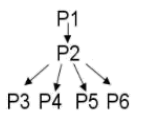 | B.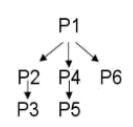 | C. |
9 . A couple often went shopping together. They both liked teacups. One day they saw a beautiful teacup in a store. As they picked it up, it suddenly spoke.
"I haven't always been a teacup. Once I was red clay. My master rolled(揉、搓) me over and over and I shouted, but he only smiled."
"Then I was placed on a rolling wheel and suddenly I went around and around. 'Stop!' I cried, but the master only nodded."
"Then he put me in the oven. I had never felt so hot. I could see him through the opening and I could read his words, 'Not yet.' "
"Finally the door opened, and he took me out and put me on a shelf. Then he brushed me and put me back into the oven. This time it was twice as hot. I begged. I cried. I could see him through the opening nodding his head, saying, 'Not yet.' "
"Then I knew there wasn't any hope. I was ready to give up, but the door opened and I was taken out and placed on a shelf. Later he handed me a mirror and said, 'Look at yourself.' I said, 'That can't be me. It's becautiful!' "
" 'I want you to remember,' he said, 'if I had just left you without rolling, you'd have dried up. If I had stopped rolling you around on the wheel, you would have been out of shape. If I hadn't put you in the oven, you would have broken. If I hadn't brushed you all over, you would not have any color in your life. If I hadn't put you back in that oven for the second time, you wouldn't be kept for very long because the hardness would not have held. Now you are a finished product. You are what I had in mind when I first started with you."
1. On the rolling wheel, when the red clay asked him to stop, the master ________.| A.stopped rolling it at once | B.only smiled |
| C.shouted at it angrily | D.only nodded |
a. It was put into the oven for the first time.
b. It was put on a rolling wheel and went around.
c. The master took it out and brushed it all over.
d. It was put back into the oven again.
e. The master rolled the red clay over and over.
| A.e, c, a, b, d | B.e, b, c, a, d | C.e, b, a, c, d | D.e, c, b, a, d |
| A.hot | B.hard | C.colorful | D.soft |
| A.the master knew how to make the teacup | B.the master disliked the teacup |
| C.the teacup will dry up if it is rolled | D.the teacup will be on sale |
| A.Beautiful look won't be refused by people. |
| B.Don't give up any chance in front of you. |
| C.Caring about others makes the world wonderful. |
| D.Going through hard time can make you better. |
10 . ①Chemistry is everywhere in our daily life. Sometimes it's easy to see. At other times, it can be very hard to see the everyday chemistry at work, but nearly everything you touch has some chemicals (化学物质) in it.
②Chemistry helps to make products for use. Something as simple as toothpaste has at least three chemicals that keep your teeth clean. Other things in your daily life are created by chemistry, such as hair products and soap. Without chemistry, we would never have known that we need soap to get the oil out of clothes.
③Chemistry also helps us understand the world around us. Thanks to chemistry, we know bleach (漂白剂) can't be mixed with vinegar (醋), because the mixture can produce harmful gas.
④Chemistry plays a big role in food preparation. Cooking food causes it to go through a chemical change. That is the reason why cooked food often tastes different from uncooked food. Too much or too little of any chemical material makes a difference to the result of baking (烘焙). For example, the cake can be too soft or too hard.
⑤Chemistry isn't something that just lives in a laboratory; it's something that you meet hundreds of times in life. Knowing how chemistry works will give you a greater understanding of the life.
1. What can the chemistry in soap help us?| A.To clean the teeth. | B.To make the teeth strong. |
| C.To clean the oil off clothes. | D.To make the clothes new. |
| A.we can mix bleach with vinegar | B.the mixture can produce useful gas |
| C.we can't mix bleach with vinegar | D.chemistry can't help us make products |
| A.cooked food is much better than uncooked food |
| B.chemistry plays a big role in food preparation |
| C.there are no chemical changes while we are cooking |
| D.the cake can't be too soft or too hard with chemistry |
A. | B. | C. | D. |
| A.Chemistry and food. | B.Chemistry around the world. |
| C.Chemistry and products. | D.Chemistry in everyday life. |



